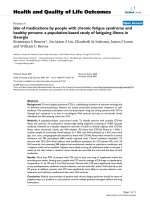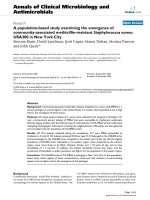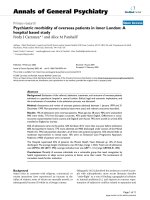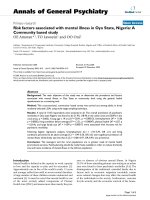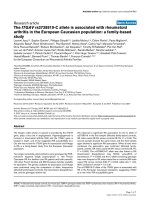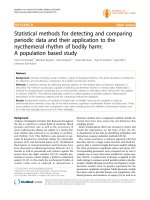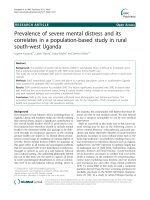A corpus based study of adjectival collocation with the word ‘economy’ in the corpus of contemporary American English
Bạn đang xem bản rút gọn của tài liệu. Xem và tải ngay bản đầy đủ của tài liệu tại đây (120.14 KB, 9 trang )
����������������������������������������������������������������������������������������������������������������������������������������������������������������������������������������������������������������������������������������������������������������������������������������������������������������������������������������������������������������������������������������������������������������������������������������������������������������������������������������������������������������������������������������������������������������������������������������������������������������������������������������������������������������������������������������������������������������������������������������������������������������������������������������������������������������������������������������������������������������������������������������������������������������������������������������������������������������������������������������������������������������������������������������������������������������������������������������������������������������������������������������������������������������������������������������������������������������������������������������������������������������������������������������������������������������������������������������������������������������������������������������������������������������������������������������������������������������������������������������������������������������������������������������������������������������������������������������������������������������������������������������������������������������������������������������������������������������������������������������������������������������������������������������������������������������������������������������������������������������������������������������������������������������������������������������������������������������������������������������������������������������������������������������������������������������������������������������������������������������������������������������������������������������������������������������������������������������������������������������������������������������������������������������������������������������������������������������������������������������������������������������������������������������������������������������������������������������������������������������������������������������������������������������������������������������������������������������������������������������������������������������������������������������������������������������������������������������������������������������������������������������������������������������������������������������������������������������������������������������������������������������������������������������������������������������������������������������������������������������������������������������������������������������������������������������������������������������������������������������������������������������������������������������������������������������������������������������������������������������������������������������������������������������������������������������������������������������������������������������������������������������������������������������������������������������������������������������������������������������������������������������������������������������������������������������������������������������������������������������������������������������������������������������������������������������������������������������������������������������������������������������������������������������������������������������������������������������������������������������������������������������������������������������������������������������������������������������������������������������������������������������������������������������������������������������������������������������������������������������������������������������������������������������������������������������������������������������������������������������������������������������������������������������������������������������������������������������������������������������������������������������������������������������������������������������������������������������������������������������������������������������������������������������������������������������������������������������������������������������������������������������������������������������������������������������������������������������������������������������������������������������������������������������������������������������������������������������������������������������������������������������������������������������������������������������������������������������������������������������������������������������������������������������������������������������������������������������������������������������������������������������������������������������������������������������������������������������������������������������������������������������������������������������������������������������������������������������������������������������������������������������������������������������������������������������������������������������������������������������������������������������������������������������������������������������������������������������������������������������������������������������������������������������������������������������������������������������������������������������������������������������������������������������������������������������������������������������������������������������������������������������������������������������������������������������������������������������������������������������������������������������������������������������������������������������������������������������������������������������������������������������������������������������������������������������������������������������������������������������������������������������������������������������������������������������������������������������������������������������������������������������������������������������������������������������������������������������������������������������������������������������������������������������������������������������������������������������������������������������������������������������������������������������������������������������������������������������������������������������������������������������������������������������������������������������������������������������������������������������������������������������������������������������������������������������������������������������������������������������������������������������������������������������������������������������������������������������������������������������������������������������������������������������������������������������������������������������������������������������������������������������������������������������������������������������������������������������������������������������������������������������������������������������������������������������������������������������������������������������������������������������������������������������������������������������������������������������������������������������������������������������������������������������������������������������������������������������������������������������������������������������������������������������������������������������������������������������������������������������������������������������������������������������������������������������������������������������������������������������������������������������������������������������������������������������������������������������������������������������������������������������������������������������������������������������������������������������������������������������������������������������������������������������������������������������������������������������������������������������������������������������������������������������������������������������������������������������������������������������������������������������������������������������������������������������������������������������������������������������������������������������������������������������������������������������������������������������������������������������������������������������������������������������������������������������������������������������������������������������������������������������������������������������������������������������������������������������������������������������������������������������������������������������������������������������������������������������������������������������������������������������������������������������������������������������������������������������������������������������������������������������������������������������������������������������������������������������������������������������������������������������������������������������������������������������������������������������������������������������������������������������������������������������������������������������������������������������������������������������������������������������������������������������������������������������������������������������������������������������������������������������������������������������������������������������������������������������������������������������������������������������������������������������������������������������������������������������������������������������������������������������������������������������������������������������������������������������������������������������������������������������������������������������������������������������������������������������������������������������������������������������������������������������������������������������������������������������������������������������������������������������������������������������������������������������������������������������������������������������������������������������������������������������������������������������������������������������������������������������������������������������������������������������������������������������������������������������������������������������������������������������������������������������������������������������������������������������������������������������������������������������������������������������������������������������������������������������������������������������������������������������������������������������������������������������������������������������������������������������������������������������������������������������������������������������������������������������������������������������������������������������������������������������������������������������������������������������������������������������������������������������������������������������������������������������������������������������������������������������������������������������������������������������������������������������������������������������������������������������������������������������������������������������������������������������������������������������������������������������������������������������������������������������������������������������������������������������������������������������������������������������������������������������������������������������������������������������������������������������������������������������������������������������������������������������������������������������������������������������������������������������������������������������������������������������������������������������������������������������������������������������������������������������������������������������������������������������������������������������������������������������������������������������������������������������������������������������������������������������������������������������������������������������������������������������������������������������������������������������������������������������������������������������������������������������������������������������������������������������������������������������������������������������������������������������������������������������������������������������������������������������������������������������������������������������������������������������������������������������������������������������������������������������������������������������������������������������������������������������������������������������������������������������������������������������������������������������������������������������������������������������������������������������������������������������������������������������������������������������������������������������������������������������������������������������������������������������������������������������������������������������������������������������������������������������������������������������������������������������������������������������������������������������������������������������������������������������������������������������������������������������������������������������������������������������������������������������������������������������������������������������������������������������������������������������������������������������������������������������������������������������������������������������������������������������������������������������������������������������������������������������������������������������������������������������������������������������������������������������������������������������������������������������������������������������������������������������������������������������������������������������������������������������������������������������������������������������������������������������������������������������������������������������������������������������������������������������������������������������������������������������������������������������������������������������������������������������������������������������������������������������������������������������������������������������������������������������������������������������������������������������������������������������������������������������������������������������������������������������������������������������������������������������������������������������������������������������������������������������������������������������������������������������������������������������������������������������������������������������������������������������������������������������������������������������������������������������������������������������������������������������������������������������������������������������������������������������������������������������������������������������������������������������������������������������������������������������������������������������������������������������������������������������������������������������������������������������������������������������������������������������������������������������������������������������������������������������������������������������������������������������������������������������������������������������������������������������������������������������������������������������������������������������������������������������������������������������������������������������������������������������������������������������������������������������������������������������������������������������������������������������������������������������������������������������������������������������������������������������������������������������������������������������������������������������������������������������������������������������������������������������������������������������������������������������������������������������������������������������������������������������������������������������������������������������������������������������������������������������������������������������������������������������������������������������������������������������������������������������������������������������������������������������������������������������������������������������������������������������������������������������������������������������������������������������grasped the gravity of the
situation and put forward a plausible
candidate.
The writer is saying that the current
state of the reigning party is not strong
because the economy is not strong and
the president has a very limited ability
to influence the economy. ’Weak’
refers to the state of the economy while
‘vulnerable’ refers to the re-electability
of the standing president. The author
believes that because the economy is
weak, the Republican Party had the
opportunity to have their candidate
elected.
(13)
(2010) Theoretically, in a "hydrogen
economy,"
our
country
could
experience seemingly endless new
expansion opportunities through new
jobs in business, industry and customer
service as we work to support the
integration of fuel cell technology into
our lives (USDOE, 2006). Envision
this awesome picture of a booming
economy intertwined with a more
environmentally friendly world.
The booming economy referred to in
this context is described as a “hydrogen
economy.” ’Booming’ has a positive
meaning, referring to an expanding
economy with new jobs in new
businesses. Other word chunks with a
positive meaning are ‘awesome’ and
‘environmentally friendly’ collectively
denoting an economically prosperous
period.
2.3.3. Findings and implications
In this study, the dictionary meanings of all of the listed adjectives are confirmed
by specific examples in the COCA. It can be observed that the meanings of the adjectives
vary in different contexts. In other words, the meanings of the words depend on the
context. Specifically, “political”, “new” and “national” have 2 meanings in different
settings.
The top 10 adjectives can be divided into groups. Initially, the size of an economy
is mentioned, from ‘local’ to ‘national to ‘global’. The provenance of an economy only
exhibits in 2 adjectives, namely ‘American’ and ‘Soviet’. The adjectives in the COCA
can be grouped as describing an economic condition with ‘strong’, ‘weak’, ‘new’ and
’booming’ on the list. Global economy stays as the prime concern for Americans.
In a multi-pillared world, cooperating with emerging economies is an option of the
US. “Political” is in the 3rd position, perhaps because the economy is controlled by
government/businesses or “political economy” as a subject stand as the most crucial issue
at that time. ‘New’, ‘strong’ and ‘booming’ have a positive meaning while weak has a
negative meaning.
This study contributes to the field of determining the meanings of words through
corpus analysis and discourse analysis as well as education. The findings of this study
129
Nguyen Hong Lien
show that the meanings of adjectival collocation with the word ‘economy’ vary in different
discourse communities. This confirms the fact that the meaning of a word is significantly
restricted by ideological context, which is the core of discourse analysis. It is noteworthy
that this study also serves as a pedagogical document which teachers and students can
consult to give them a more comprehensive view and reference material when studying
economics.
3.
Conclusion
The objective of this study is to pinpoint those adjectives which collocate in the
highest frequency with the word ‘economy’ in the COCA, thus revealing American
English use of the word ‘economy’ in the COCA. This study is expected to fill a gap
in corpus linguistic research surrounding the lexical item ‘economy’.
In order to attain the mentioned goals, a corpus-based approach is employed
using the lexical collocation technique. After running the queries, the top 10 adjectives
which collocate in the highest frequency with the word ‘economy’ in the COCA are
listed. Subsequently, the adjectives are analyzed. Initially, dictionaries’ meanings of each
adjective are contrasted with the meaning of the word in contexts to confirm the use
of the adjective. Then the adjectives are thoroughly examined to uncover the underlying
ideologies in the COCA.
The data analyses come to the following conclusions:
(1) The meanings of adjectival collocation with the word ‘economy’ vary in
different discourse community.
(2) The top 10 adjectives collocating with the word ‘economy’ describe the size,
provenance and condition of an economy.
This study not only contributes to the field of developing meanings of words
through corpus analysis and the field of discourse analysis but also serves as a pedagogical
document which teachers and students can consult.
REFERENCES
[1] Conrad, S., (Guest Editor), 2003. TESOL Quarterly Special-Topic Issue on Corpus
Linguistics. 37(3), pp. 385.
[2] Davies, M., 2008-. The Corpus of Contemporary American English: 450 million
words, 1990-present. Available online at />[3] Firth, J. R., 1935. The technique of semantics. Transactions of the Philological
Society, pp. 36-72.
130

